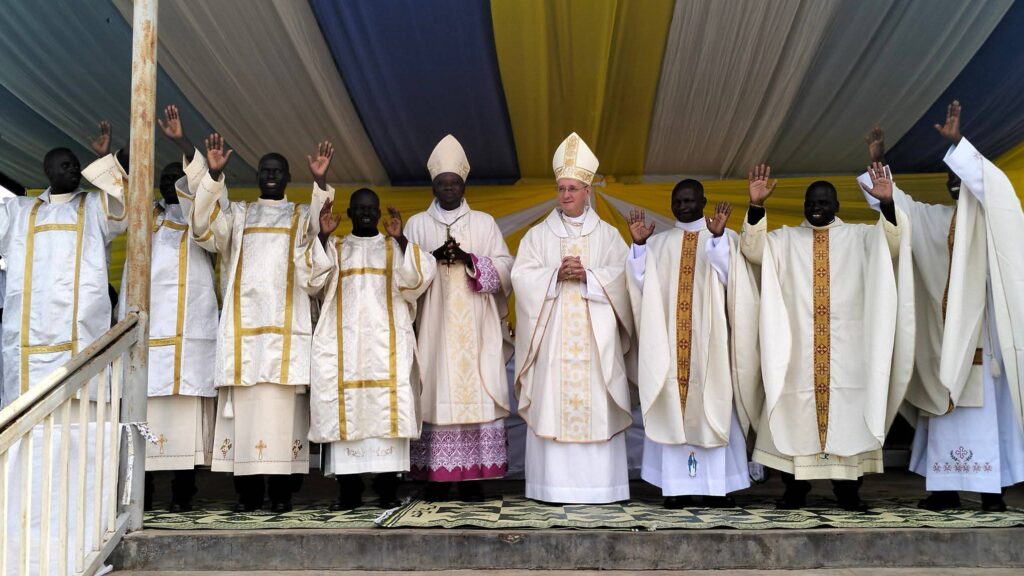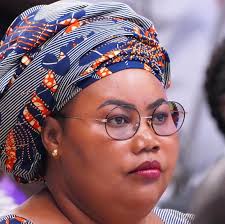South Sudan Minister of Environment and Forestry Josephine Napwon has expressed support for Eastern Equatoria State Governor Louis Lobong’s efforts to ensure all pastoralists in Magwi County return to their original homes.
The minister made the statement during the ordination of three priests and four deacons at the Catholic Diocese of Torit’s Our Lady of Assumption Parish in Loa, north of Nimule Town, last Friday.
She urged Governor Lobong to be firm and not be shaken by politicians who support pastoralists who keep cattle in areas where natives cultivate crops, saying “cattle and farmers are not best friends.”
“I would like to encourage the governor since he has mentioned land, cooperation, and also the issue of cattle herders. Governor, I think you are a great man, you are the son from the east, and you should not be shaken because what you are doing you are doing is for the sake and benefit of the people of Eastern Equatoria State,” she said. “I know people in Juba always twist issues, but cattle cannot be combined with farming or crops. I urge the governor not to fear and continue defending the territory and people of Eastern Equatoria State.”
For his part, Governor Lobong urged South Sudanese refugees in neighboring countries to return home and embrace peace and unity, and support the government in defending the country’s territory.
“Let us therefore use this occasion to renew our collective commitment to unity across political divides, communities, and the state,” he said. “We can transform our society into one where the dignity of every person is respected, where peace and justice prevail. To the community of Madi, I would like the Church to join me in calling our people who are still refugees outside to come home.”

Meanwhile, Josephine Lagu, the vice president in charge of the service cluster, said the government is committed to supporting returnees.
“Home is home, and you (refugees) need to return home. When you return, the government will support you because it is supporting and providing services to Sudanese refugees flocking to our country,” she said. “The government is also providing services and support to our own South Sudanese people who have been living in the Sudan until recently. Why would the same government not provide services to our people returning from the camps just across the border here?”




